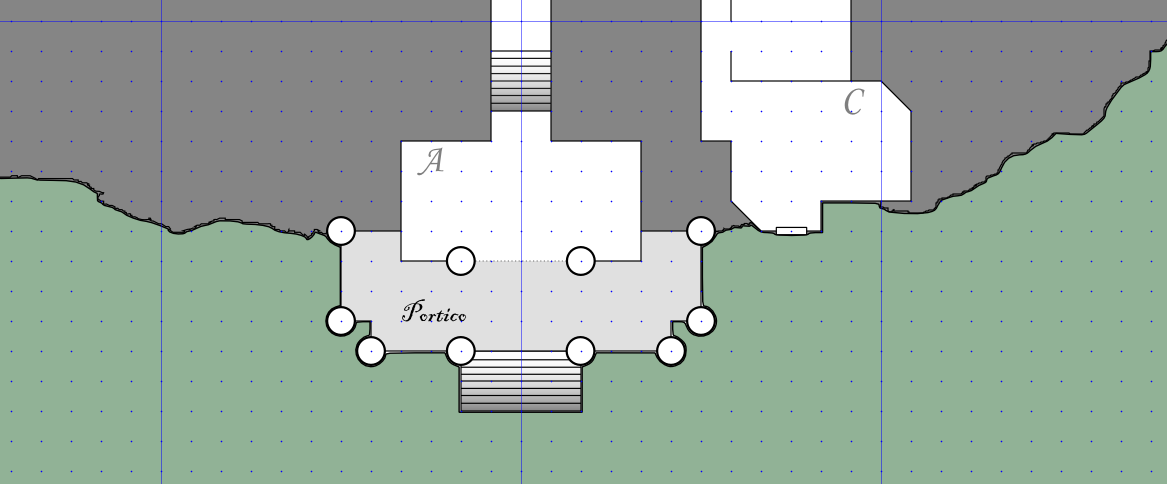As I was working today, the unexpected happened: the building lost power. Since I work in a warehouse without much in the way of windows and it’s for a company that sells IT equipment, the effect was pretty dramatic. The building was plunged into inky darkness, lit only by a few laptops we had running that switched to battery power and the activity lights on the servers (which had uninterruptible power supplies). A few minutes later, the UPSes on various desktop PCs started to beep as their batteries drained down and my boss shut down the lab servers so they could come down properly. Then we basically stood around with cell phone lights and flashlights we normally used for working inside computer cases and talked – jokes flew about what various people were doing to knock the power out to whole building, and when it became apparent that this wasn’t a problem that was going away in 5 minutes, we decided to get lunch at a nearby sandwich shop. In a moment, without warning and without time to plan or even react, the environment I was in changed completely.
I’m sure you can tell where I’m going with this already.
As I sat there eating my sandwich, the gaming implications of a sudden environmental change started percolating in my head. Now, I’ll lead off by saying that one of the things that made the idea pop into my head in the first place is that the change that happened to me at work today was dramatic, sudden, and inconvenient, but it wasn’t hazardous. The parameters of my day changed in an instant, but that change didn’t threaten my safety at all, nor did it do so for my coworkers. The sudden absence of electricity didn’t mean we were suddenly in danger, it just meant we couldn’t do our normal work. Similarly, these same kinds of nuisance (or even beneficial) sudden changes can spice up a gaming session. Some examples I thought of as I was working on this:
In a modern game, the power goes out (like happened to me). You really don’t realize just how much we depend on a steady flow of electricity in the modern world until it disappears! In addition to losing the lights, we couldn’t use our computers any more, by extension, we were limited to our smartphones for internet access, and we couldn’t even heat our lunches up in the microwave. Even fairly menial jobs these days have some kind of digital component to them – at my old job, all of the books I received went into an inventory database, so if we lost power there, we were dead in the water as well. Nothing shuts down the modern world like taking the electricity away.
A flash flood, avalanche, or landslide washes out or blocks a road or bridge the PCs need to use to travel somewhere. Suddenly being stranded somewhere or having to take a radically different (and probably longer) way around is a good way to either make a party experience one area in more detail or see a much larger stretch of territory than they would have otherwise.
A message arrives (via courier or cell phone as appropriate) to inform the PCs that some drastic change has happened in the world. Depending on the game, this could be a regime change, an inheritance, an important technological breakthrough, the end or the start of a war, first contact with another sapient species, or any number of other dramatic events. Particularly in a world that’s industrial but does not have modern communications and logistical technologies, it can be nearly impossible to stop certain things once they’ve been set in motion. In fact, that’s how the first World War started. That doesn’t mean, however, that the PCs can’t do anything, just that they’re now operating in a different setting.
Due to magic, advanced technology, or weird science, the PCs suddenly and unexpectedly find themselves Somewhere Else. Grant used this to great effect in our D&D game when he transported us to an extradimensional fortress set up by an insane spellcaster. Having to suddenly grapple with an entirely new set of environs (particularly unfamiliar ones) gives PCs an opportunity to explore and forces them to think on their feet.
I’m sure you can think of other examples (and I’d love to see them in the comments).
One important thing to keep in mind when using elements like this is that a little goes a long way. A dramatic twist or environmental shift can add a lot of drama and excitement to a session. Having a whole panoply of them runs the risk of making the players feel unmoored in the setting at best and railroaded at worst. That caveat out of the way, though, I think a lot of games could benefit from a dash of the unexpected.




